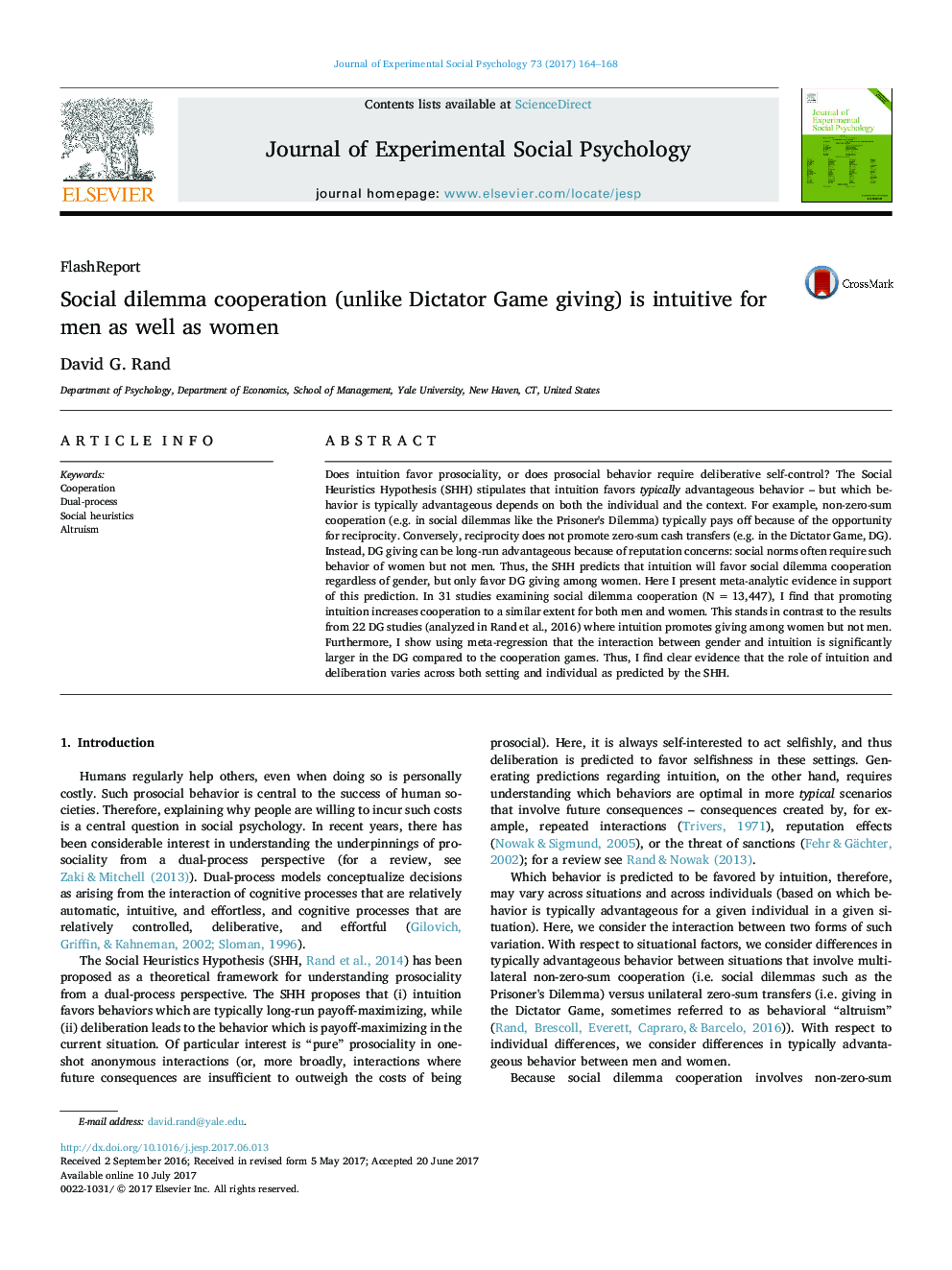| کد مقاله | کد نشریه | سال انتشار | مقاله انگلیسی | نسخه تمام متن |
|---|---|---|---|---|
| 5045703 | 1475850 | 2017 | 5 صفحه PDF | دانلود رایگان |
Does intuition favor prosociality, or does prosocial behavior require deliberative self-control? The Social Heuristics Hypothesis (SHH) stipulates that intuition favors typically advantageous behavior - but which behavior is typically advantageous depends on both the individual and the context. For example, non-zero-sum cooperation (e.g. in social dilemmas like the Prisoner's Dilemma) typically pays off because of the opportunity for reciprocity. Conversely, reciprocity does not promote zero-sum cash transfers (e.g. in the Dictator Game, DG). Instead, DG giving can be long-run advantageous because of reputation concerns: social norms often require such behavior of women but not men. Thus, the SHH predicts that intuition will favor social dilemma cooperation regardless of gender, but only favor DG giving among women. Here I present meta-analytic evidence in support of this prediction. In 31 studies examining social dilemma cooperation (NÂ =Â 13,447), I find that promoting intuition increases cooperation to a similar extent for both men and women. This stands in contrast to the results from 22 DG studies (analyzed in Rand et al., 2016) where intuition promotes giving among women but not men. Furthermore, I show using meta-regression that the interaction between gender and intuition is significantly larger in the DG compared to the cooperation games. Thus, I find clear evidence that the role of intuition and deliberation varies across both setting and individual as predicted by the SHH.
Journal: Journal of Experimental Social Psychology - Volume 73, November 2017, Pages 164-168
